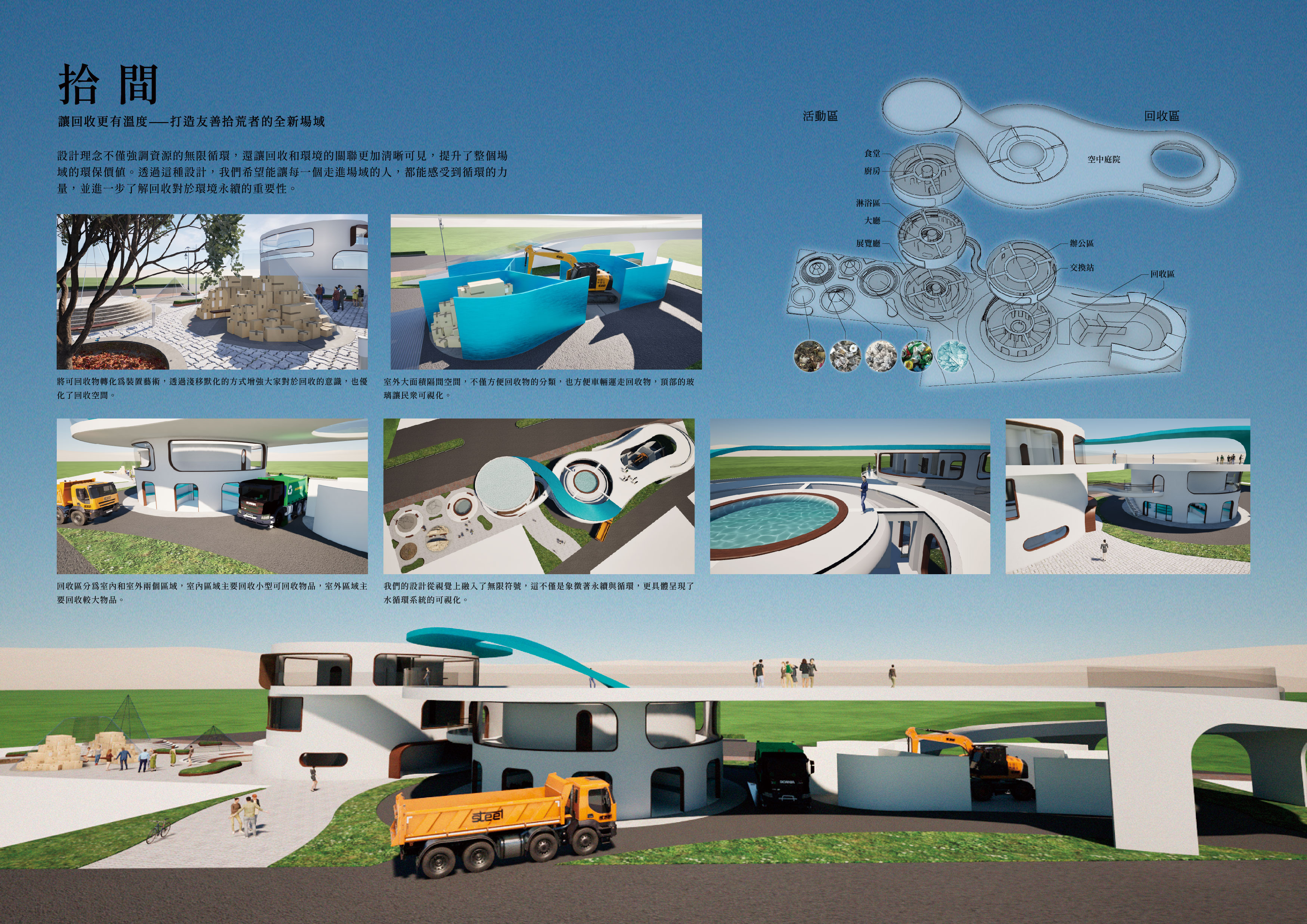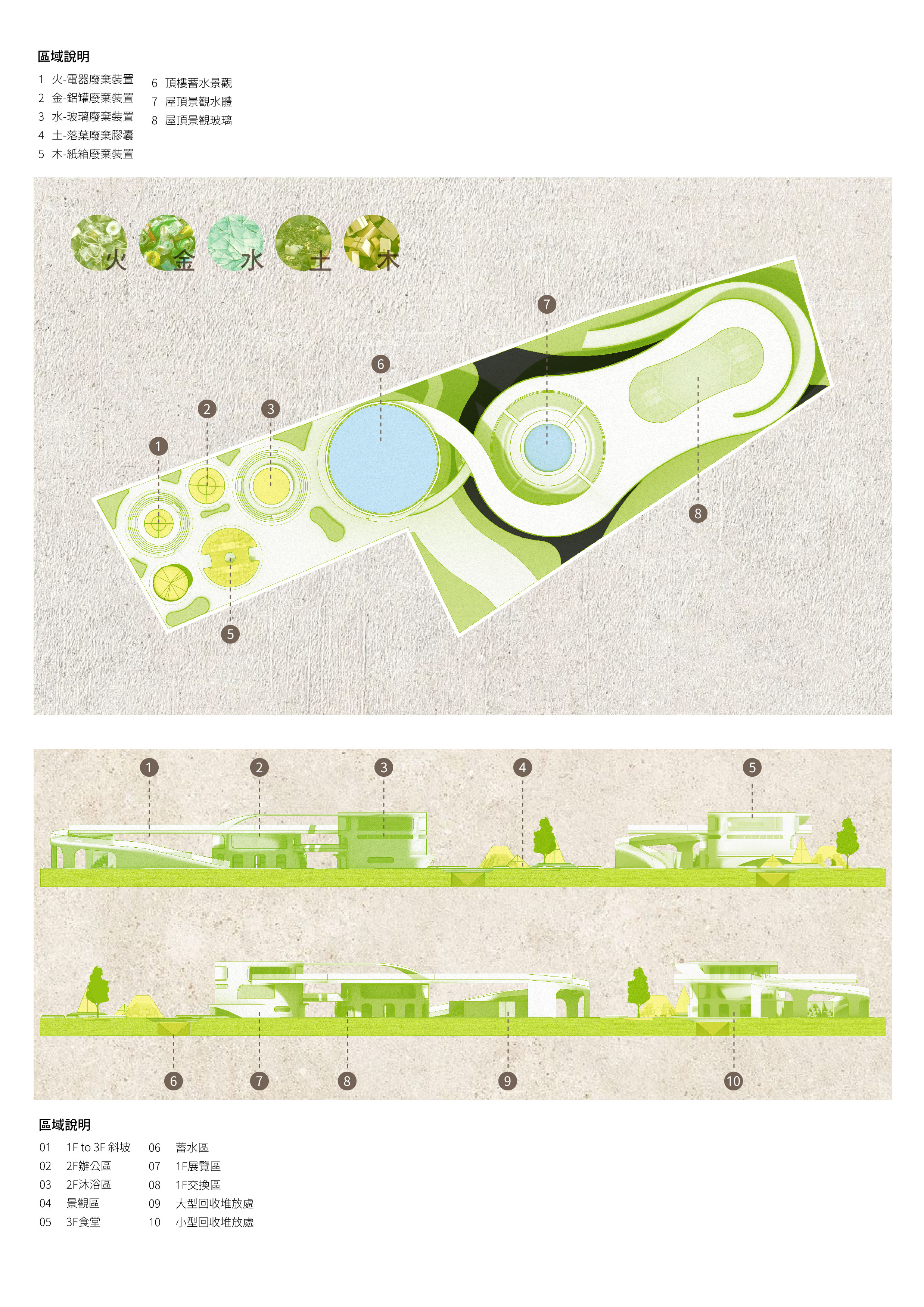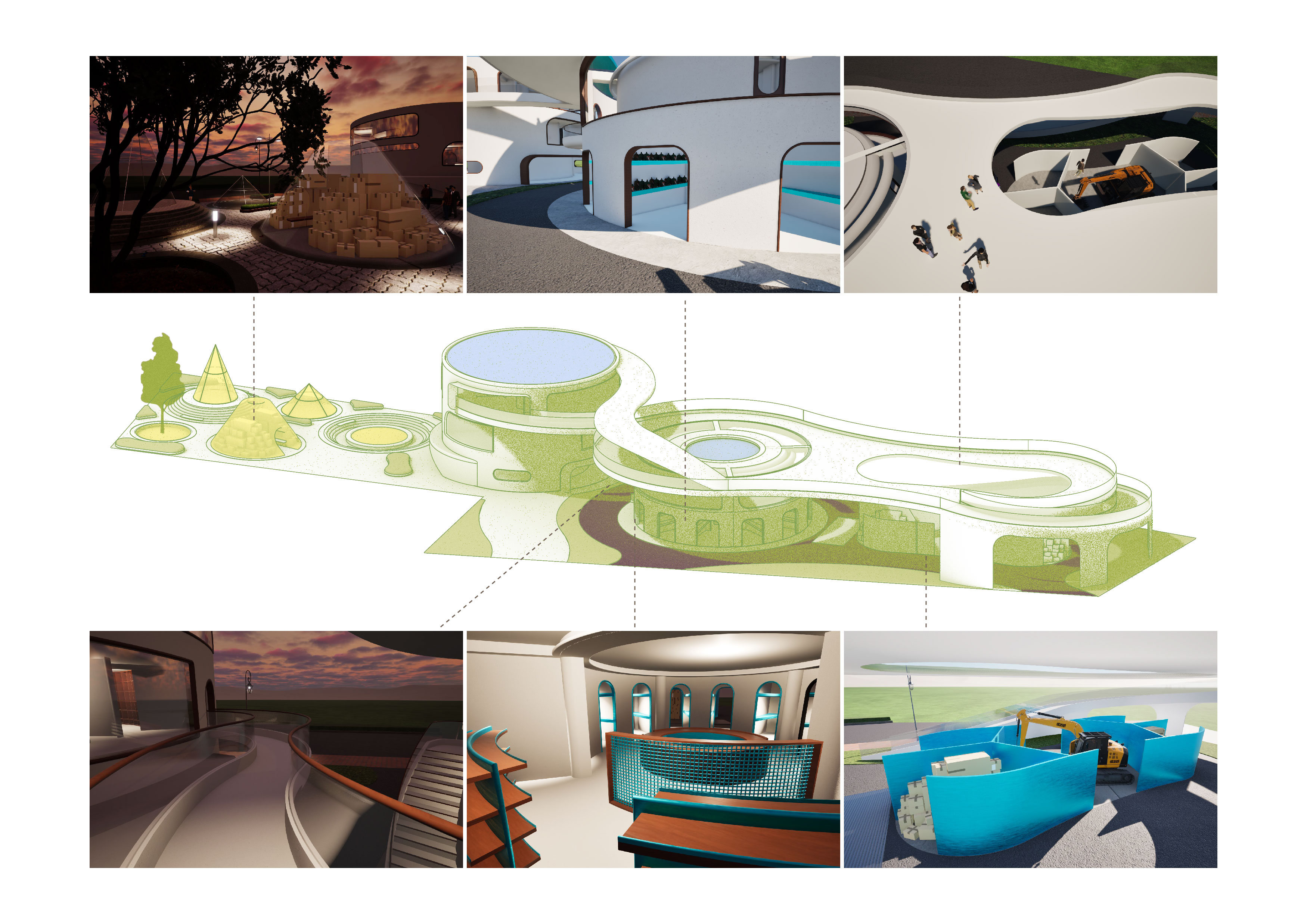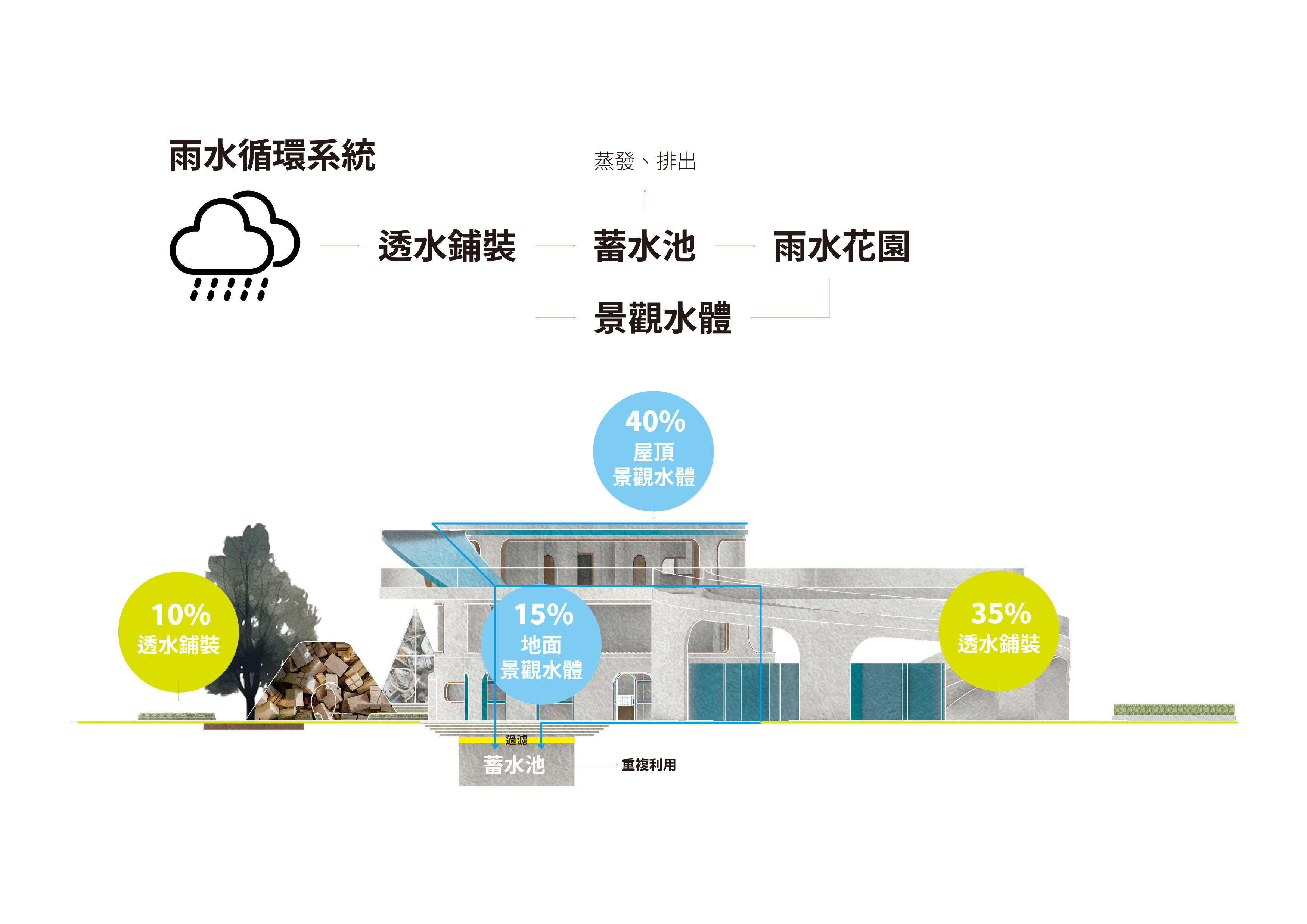拾間
RAGPICKER REVIVAL





隨著高齡化與少子化影響,獨居長者比例上升,社會結構正在轉變。當經濟支持與社會連結不足,拾荒成為部分人的生存方式,然而這項重要的勞動卻因刻板印象而被忽視,甚至遭受負面標籤,使拾荒者的社會地位邊緣化,勞動價值長期未被正視。
我們走在乾淨的街道上,是否曾思考過,這份整潔來自誰的付出?
「拾間」致力於改造回收場,從空間設計到社會認知,全面翻轉拾荒者的勞動價值。
本計劃不僅提升回收場的工作環境,更以「無限符號」融入建築設計,象徵循環與再生的概念。透過流暢的回收動線、友善的作業環境,讓拾荒者能在更安全、更尊嚴的空間中工作。此外,增設淋浴區、食堂、休憩空間,讓勞動與生活共存,提升拾荒者的基本生活機能。
我們更設置「回收五行山裝置」,促進社區互動與資源流動,讓民眾參與回收行動,建立更緊密的社會連結。這不僅是一座回收場,更是一個具有社會溫度的循環生態系統。拾荒不只是生存手段,而是一項值得被肯定的社會價值。我們相信,透過這次改造,能讓拾荒者的努力被看見,讓回收成為一種尊重與共融的行動。
RAGPICKER REVIVAL
"RAGPICKER REVIVAL"—Redefining Recycling Facilities with a Human Touch
As aging populations and declining birth rates reshape society, the number of elderly living alone continues to rise. Without sufficient economic support or social connections, waste picking has become a means of survival for some. However, due to deep-rooted stereotypes, this labor remains undervalued and stigmatized, marginalizing waste pickers and leaving their contributions unrecognized.
When we walk on clean streets, do we ever think about who made them this way?
The "RAGPICKER REVIVAL" aims to transform recycling facilities, not only improving the physical space but also reshaping public perception of waste pickers.
This project goes beyond recycling—it integrates the infinity symbol into architectural design, representing the concept of sustainability and regeneration. Through an optimized workflow and a more worker-friendly environment, waste pickers can operate in safer and more dignified conditions. Additionally, facilities such as showers, dining areas, and rest spaces provide essential support, ensuring that labor and daily life coexist harmoniously.
To further community engagement, the project introduces the "Recycling Five Elements Installation", encouraging interaction and resource circulation between the public and waste pickers. This is not just a recycling plant—it is a sustainable ecosystem with social warmth. Waste picking is not merely a means of survival; it holds immense social value. Through this transformation, we aim to ensure that the efforts of waste pickers are recognized, and recycling becomes an act of respect, inclusion, and collective responsibility.
國立雲林科技大學創意生活設計系
(四年級)
黃采妍
國立雲林科技大學 創意生活設計系
(四年級) 指導老師 劉秉承